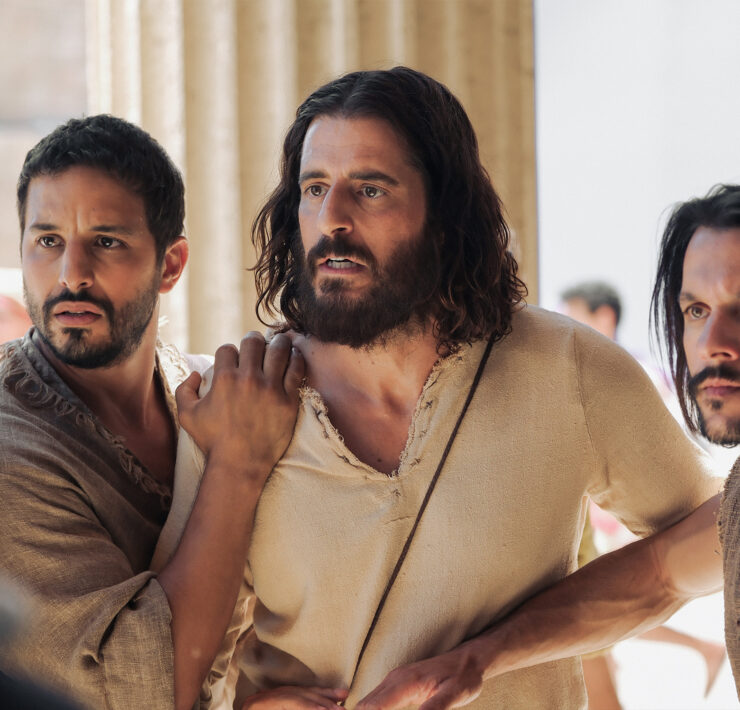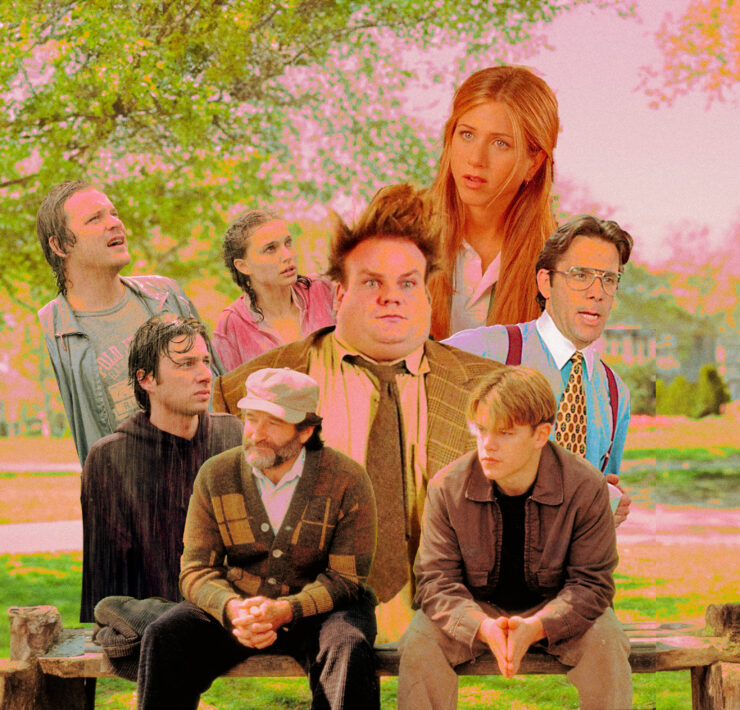
Today, the term “Christian art” doesn’t exactly conjure up work on par with Michelangelo’s David or Sistine Chapel ceiling. But to be fair, Michelangelo had something most Christian artists don’t: patrons with deep pockets. The Medici family of Florence funded much of the famous artist’s work and ensured that his time and talent were devoted to works of international renown rather than scraping by as a starving artist.
When it comes to Christian films, it’s easy to make jokes about the overall quality (which often chart somewhere below made-for-TV flicks) without looking at why. The average Hollywood release is made for $35 million, with summer blockbusters often clocking in north of $100-150 million. By comparison, the 2011 Christian film Courageous was made for $2 million.
Courageous, a marriage drama, made $35 million. That’s no small feat. The movie’s a good case study of the hunger for faith-based content, but it’s also a flick I’d never watch twice, maybe not even once. The actors aren’t well-lit, often delivering lines with their faces (unintentionally) in shadow. The dialogue fades in and out at random. The action shots pale in comparison to modern trick-shot artists on YouTube. To the average viewer, it’s a bad and cheap movie. And yet, despite the flaws, Courageous racked up $35 million at the box office.
HOW A FORMER FOSTER KID AND A VENTURE CAPITALIST COULD CHANGE EVERYTHING
Most Christian films have been made via either church-based venture-capital efforts or crowdfunding. Those limited resources are hindering quality, and that gives us fare like Courageous more often than not. However, one anonymous patron is trying to change Christian film through the Michelangelo/Medici model, transitioning from a bootstrapped model to a patronage-based strategy. In other words, they’re trying to make better Christian movies by fronting most of the money themselves.
The patron has chosen to conceal his identity (and source of income), but producer Harrison Powell shared some insight into why the funder has put his personal money into Giving Films. Growing up in foster care, the Giving Films patron developed a deep connection to film.
“Movies have always been an important part of our funder’s life, especially during his childhood.” Powell explains. “As he explored the world of independent film, he saw an opportunity to apply his business mindset with the goal of giving the profits away and developing an influence in the types of stories being told. We saw an opportunity to tell a different type of faith film, one that did not feel like a sermon, but created conversation around faith for audiences, regardless of where they are on the spiritual spectrum.”
With the donor’s financial support, Giving Films releases its third project, An Interview with God, to theaters this week. The new movie follows last March’s Paul, Apostle of Christ and 2015’s 90 Minutes in Heaven. Whether you enjoy any of these titles, there’s no doubt the look and feel of these movies is worlds apart from the crowdfunded fare.
An old adage in the film industry is that if you want to make movies, skip film school and get an MBA. Like all entertainment ventures, movies are a business. Powell spent years in the venture capital world before switching over to movies. “At the end of the day, I believe every film is a start-up company,” he says. “You have a story idea, a budget, a marketing plan and a team. And you have a lot of risks.”
BRINGING HOLLYWOOD STARS TO FAITH PROJECTS
An Interview with God is about a reporter’s encounter with a man who claims to be God. It’s the kind of story you see nominated for awards late in the year; it dives deep into war and PTSD and marital infidelity and doubt. Brenton Thwaites (Gods of Egypt, Pirates of the Caribbean: On Stranger Tides), Yael Groblas (Supergirl, Jane the Virgin) and Oscar nominee David Straitharn (Lincoln, Good Night and Good Luck) bring a gravitas to the screen rarely (if ever) seen in a theatrical release for a faith-based narrative.
Interview lives and dies on three extended conversations between journalist Paul Asher (Thwaites) and a man claiming to be God (Straitham). Rather than being heavy handed, the veteran actors unspool each line in a way reminiscent of Oscar winners The King’s Speech and Darkest Hour.
The box-office response from faith-based audiences has yet to be seen, but there’s no doubt Powell and Giving Films are swinging for the fences, attempting to change how we use the term “Christian film.”
“I personally do not view ‘Christian’ as a film genre,” Powell says. “Drama, comedy, thriller, action is a genre. When ‘Christian’ becomes a genre, it can bring preconceived notions of the quality and story that we are trying to avoid.
“I see an opportunity to create great comedies that happen to spark conversations around faith, or action films that happen to be infused with a Christian worldview. This is what happens when the message is not put above storytelling, but rather the story is a conduit for a message.”
There’s no doubt Christian flicks like Courageous, Fireproof and Facing the Giants have created waves at the box office and found passionate fans, but the fact remains some viewers will never be drawn into theaters because of the technical issues that come with shoestring budgets.
What’s possible when faith-based movies, already growing in popularity, look and feel as slick as major studio releases remains to be seen. For Giving Films, the answer lies not in radical innovation or a flashy trend, but an old-school model. Patronage has produced some of the greatest art in history, Christian or otherwise. Maybe it still can.






















